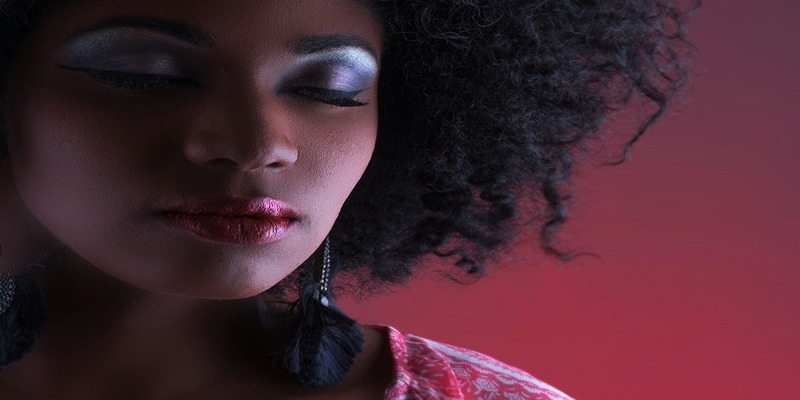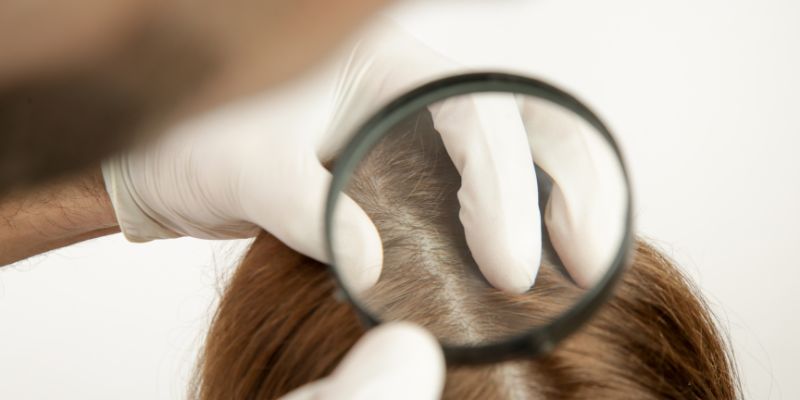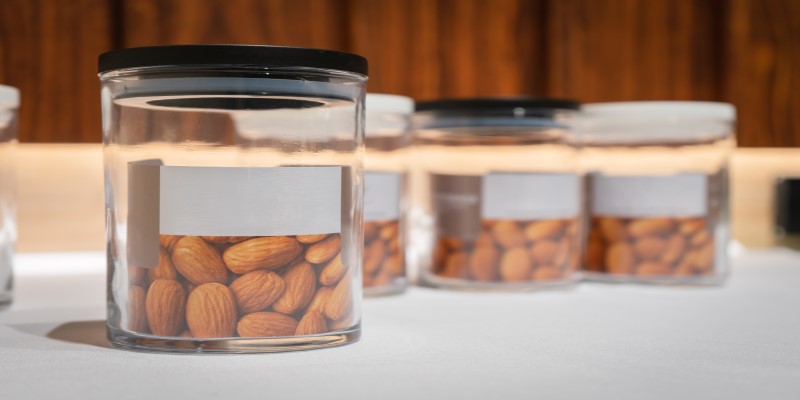About 50% of the population over 50 has alopecia, the medical term for hair loss.12 The effect could be temporary or long-lasting. Alterations to the hair cycle that do not include the destruction of hair follicles allow for reversible hair loss. Scar tissue may surround hair follicles, causing permanent hair loss.
If you don't obtain enough hair growth nutrients, use a supplement. Micronutrients—vitamins and minerals—form the hair follicle cycle. Best hair growth supplements may assist with vitamin and mineral deficiency-related hair loss.
A healthcare provider, pharmacist, certified nutritionist (RD or RDN), or customized assessment by a qualified dietitian should precede supplement usage. Note that the following suggestions have no dietary supplement with any medicinal, therapeutic, or preventative use. Following is a discussion of the daily requirements for certain nutrients and best hair growth supplements, along with situations in which taking a supplement might be beneficial.
Protein
Increasing protein consumption may theoretically stimulate hair development as proteins like keratin make up the bulk of hair. However, there is little evidence at this time. Protein requirements are often defined at 0.8 g/kg of body weight for the body to operate normally. Nevertheless, the daily protein requirements of the following populations are higher:
- Babies
- Sportsmen
- Malnourished people
- People battling illnesses
- Those who have just had surgery
Because it is indigestible, keratin taken orally will not alleviate hair loss. Amino acids, such as cysteine, are converted into keratin in the body, and several hair development treatments include them. Before making any recommendations, further investigation is necessary. According to early research, fish protein supplements may assist women with hair loss, minimize hair loss, and thicken their hair.
Collagen
Hair, nails, and skin benefit from collagen supplements. Little evidence suggests it delivers. A short study of 44 healthy females revealed that 2.5 g of collagen peptides daily increased hair follicles and thickness. Hair felt softer and looked better after eight weeks of hyaluronic acid, peptides, lipids, and collagen therapy. Using multiple chemicals makes it hard to determine how much of the effect was collagen alone.
Omega-3 Fatty Acids
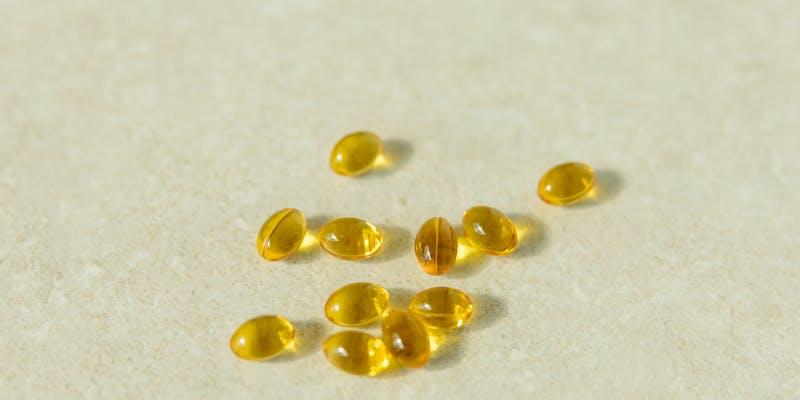
Lack of omega-3 fatty acids has been associated to hair and brow loss. Women who took an omega-3, fatty acid, and antioxidant supplement had thicker hair and less hair loss. Again, this mixed-ingredient formulation makes omega-3 fatty acid effects difficult to separate.
Zinc
Humans need trace zinc, a micronutrient. Zinc boosts immunity, cell turnover, and wound healing. Zinc supports the hair follicle cycle, maintaining healthy hair. Zinc deficiency causes alopecia or hair loss, and zinc supplements may assist. Zinc pills may replenish vitamin levels, reducing hair loss. Some studies discover different things.
According to some research, half a milligram (mg) of zinc supplementation may slow hair thinning. Taking 50 milligrams of zinc daily thickened hair in a study of balding women. Taking a 50 mg zinc supplement daily for eight weeks reduced hair loss compared to a placebo, an ineffective chemical, in another research of women with normal zinc levels and polycystic ovarian syndrome (PCOS). As a side effect, PCOS may cause hair loss.
In conclusion, zinc supplements may not halt or reverse hair loss in healthy people without low zinc levels or other zinc-related health issues. Low zinc may induce reversible telogen effluvium hair loss. The optimal dosage and whether zinc supplements stop or reverse hair loss is unknown due to insufficient research.
For women experiencing hair thinning, research suggests a daily dosage of 50 milligrams (mg). Nearly 50% of zinc-treated women in this study saw a reduction in hair loss. Adults should consume the following amounts of zinc each day:
- 11.25 milligrams for men
- 8 milligrams for women
- 11 milligrams when expecting
- 12 milligrams while nursing
Vomiting and diarrhea are side effects that may occur if the dosage of zinc is too high.11 Furthermore, the following may occur when zinc is taken in significant quantities for a long time (many weeks):
- Lead poisoning
- Hyperemia
- Decreased immunological response
Biotin
Biotin (vitamin B7) is recognized to prevent and cure hair loss. Although it is commonly advocated for this reason, it is not proven useful unless you are biotin deficient. Case studies in children with familial uncombable hair syndrome, a rare disorder, who took 5 mg of biotin daily are the only evidence supporting utilizing biotin for hair development.
Every day, people over the age of 19 need 30 mcg of biotin, and when nursing, that number rises to 35 mcg. Meat, eggs, and other protein-rich meals are excellent ways to get biotin. A good, balanced diet seldom causes biotin deficiency. Symptoms of insufficient biotin include hair loss, rashes, and brittle nails. Always remember that biotin supplementation might bias thyroid and cardiac test results. Consult your doctor before taking biotin.
Iron
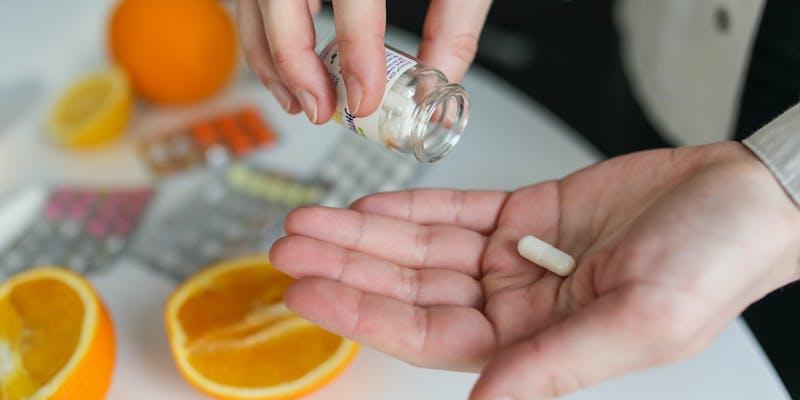
Cells that proliferate quickly, such as hair follicles, need iron. A lack of iron is linked to thinning hair. The Food and Nutrition Board (FNB) of the Institute of Medicine (IOM) of the National Academies determined the following daily iron needs for adults:
- 6 mg for men
- 18 milligrams for women ages 19 to 50
- 8 mg for women who are 51 and above
- 28 milligrams when carrying a child and 9 milligrams while nursing
Iron supplements may help hair loss caused by iron deficiency. However, not enough research suggests that iron promotes hair growth without a deficiency.
Selenium
Hair loss may occur when selenium levels are either too low or too high. Selenium may be found in seafood and Brazil nuts, good dietary sources. Adults should consume the following amounts of selenium per day:
- Daily, 55 micrograms
- 60 micrograms daily when pregnant
- 70 micrograms daily while lactating
Selenium has been studied for chemotherapy-induced hair loss. The effectiveness is uncertain since different vitamins were given throughout the trial. Research has also shown that newborns with alopecia benefit from selenium supplementation at 5 mcg/kg daily. Hair thinning is commonly caused by selenium poisoning. You don't need a hair loss supplement if your body has enough selenium.

